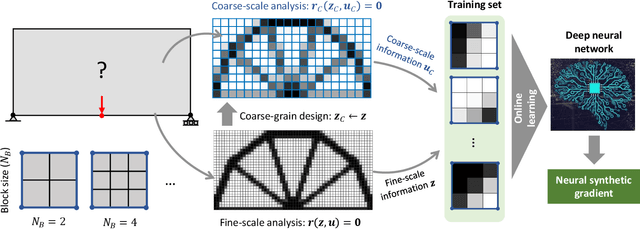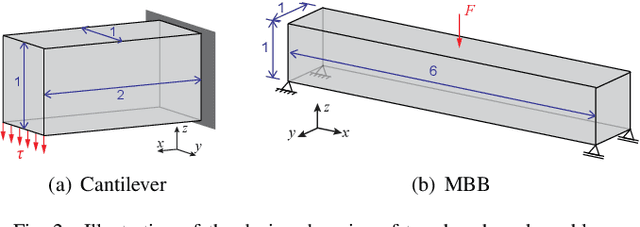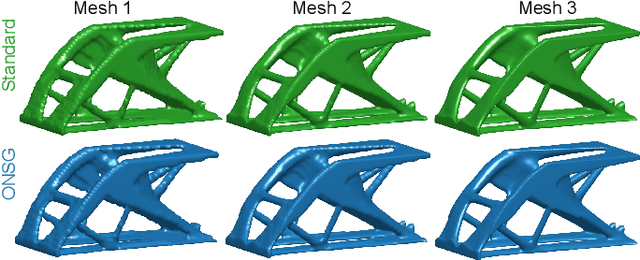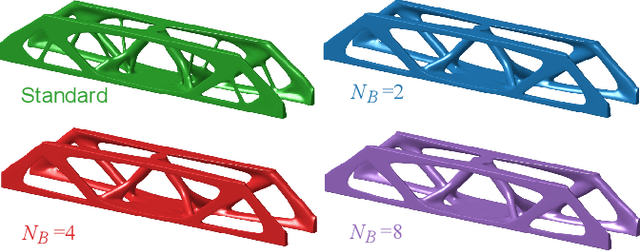Glaucio H. Paulino
Consistent machine learning for topology optimization with microstructure-dependent neural network material models
Aug 27, 2024Abstract:Additive manufacturing methods together with topology optimization have enabled the creation of multiscale structures with controlled spatially-varying material microstructure. However, topology optimization or inverse design of such structures in the presence of nonlinearities remains a challenge due to the expense of computational homogenization methods and the complexity of differentiably parameterizing the microstructural response. A solution to this challenge lies in machine learning techniques that offer efficient, differentiable mappings between the material response and its microstructural descriptors. This work presents a framework for designing multiscale heterogeneous structures with spatially varying microstructures by merging a homogenization-based topology optimization strategy with a consistent machine learning approach grounded in hyperelasticity theory. We leverage neural architectures that adhere to critical physical principles such as polyconvexity, objectivity, material symmetry, and thermodynamic consistency to supply the framework with a reliable constitutive model that is dependent on material microstructural descriptors. Our findings highlight the potential of integrating consistent machine learning models with density-based topology optimization for enhancing design optimization of heterogeneous hyperelastic structures under finite deformations.
Speeding up Computational Morphogenesis with Online Neural Synthetic Gradients
Apr 27, 2021



Abstract:A wide range of modern science and engineering applications are formulated as optimization problems with a system of partial differential equations (PDEs) as constraints. These PDE-constrained optimization problems are typically solved in a standard discretize-then-optimize approach. In many industry applications that require high-resolution solutions, the discretized constraints can easily have millions or even billions of variables, making it very slow for the standard iterative optimizer to solve the exact gradients. In this work, we propose a general framework to speed up PDE-constrained optimization using online neural synthetic gradients (ONSG) with a novel two-scale optimization scheme. We successfully apply our ONSG framework to computational morphogenesis, a representative and challenging class of PDE-constrained optimization problems. Extensive experiments have demonstrated that our method can significantly speed up computational morphogenesis (also known as topology optimization), and meanwhile maintain the quality of final solution compared to the standard optimizer. On a large-scale 3D optimal design problem with around 1,400,000 design variables, our method achieves up to 7.5x speedup while producing optimized designs with comparable objectives.
 Add to Chrome
Add to Chrome Add to Firefox
Add to Firefox Add to Edge
Add to Edge